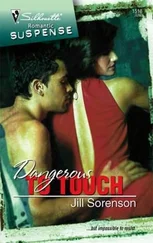“This is a treatment—medical electricity—that can be used for nervous disorders, but it’s not been much studied, and as you see, it’s painful. I think it may help Madeline, but I must be sure before I try it on her.”
“I don’t have a mental disorder, George. You can’t learn anything from doing this to me.”
“You’re just her size,” he said. “I didn’t notice it until you wore her clothes after you both got soaked in the rain. I have to figure out how much current is required—and how much is too much—so I can try to stop the progression of the hideous disease that’s destroying my dear girl.”
“But you won’t know the effect on her brain,” I said, hoping to keep him talking until I could make an escape from the leather straps. They weren’t terribly tight, but tight enough. I might be able to wriggle my way out of them if given enough time. I rolled my ankles, not wanting to draw his attention to my hands. “What you’re doing to me is futile.”
“No, no, you’re wrong,” he said. “Edith started to respond to the treatment and as the results got better and better I escalated too quickly, although I wasn’t giving her even half what this machine can generate. When the volts went too high, she fell into a coma. It was a horrible sight. She foamed at the mouth and twitched violently. She recovered in less than half an hour, but I could see that she was no longer herself. She was more crazed, and she broke free and lashed out at me. Knocked me against the wall and I lost consciousness for a brief moment. When I woke, she was gone.”
“You killed her.”
“I had no choice, Emily. If she’d made it to the village, she would have told them, she would have brought the police, and all my work would have been for naught. Would you have me let my wife slip into the irrevocable bonds of madness?”
“You can’t save her by killing others,” I said.
“Edith shouldn’t have died. I admit, it’s my fault for escalating the experiment at the wrong pace. But she left me no option once she’d fled. I found her easily enough—she was crying, couldn’t stop from the sound of it. All I had to do was follow the sound.”
“But the manner in which you killed her. It was so brutal, George…how could you?” The horror of being trapped so near a person capable of such crimes was beyond any words. I was sweating, my stomach churned, my muscles clenched. My very bones ached with pain as my entire body revolted at his proximity.
“I did it quickly. The knife was sharp. The rest…” He covered his eyes. “It was terrible for me, too, you know. But I thought if I made it look like something it wasn’t—if I mimicked a crime more famous…perhaps I would avoid all scrutiny.”
“You have to let me go, George.”
“Oh, Emily, I should like nothing better. But you know I can’t do that, especially now. I’ve always liked you, and Madeline adores you, so I can promise to be as kind as the situation allows. I have to figure out how much current you can take before the seizure, and that I will do slowly. But in the end…” He choked on the words. “I will do it when you’re unconscious. You will feel neither pain nor fear. And you can die knowing you’re giving back to me the woman I adore more than anything.”
I couldn’t speak, could hardly think. No terror could be compared to this, no dread, no hideous imagining. I let my eyes meet his, wanting to see if madness was visible on his face. His pupils were dilated, his skin flushed, but he looked otherwise like a perfectly ordinary man. To have found otherwise might have provided a slim parcel of comfort.
“Where’s Lucy?” I asked, desperate to distract him from the course of action on which he was bent.
“Don’t worry about the child,” he said. “She will come to no harm. I’m taking care of her and soon will introduce her to Madeline, who I know will be an excellent mother to her.”
“Why did you take her? Would it not have been better to leave her where she was safe and well cared for?”
“She may show signs of the illness, too. I might need her.”
“You can’t do this, George. The poor child! What must she think? Surely she knows something is dreadfully wrong.”
“No, I’ve taken exquisite care of her, even if I have had to hide her away. Sometimes she gets upset in the night and cries for her mother—which is to be expected, I suppose. I take her for long walks in the countryside until she falls back asleep. She’s come to quite depend on me. She knows that her mother’s illness was fatal, and all orphans, you know, long for a real home. I’ve told her she’s to have one.”
I shuddered, realizing the eerie keening I’d heard had been the child—a real one—weeping over the loss of her mother. The reality of this all-too-human pain, hopeless and devastating, felt far more frightening than any ghostly apparition could have.
“And what will you tell everyone else?” I asked. “You can’t just magically have a child appear in your household.”
“Lucy believes that her father, Vasseur, had an accident on his way home from the Foreign Legion, and asked me, as he lay dying, to look after her. She thinks her mother had to spend time away from her because she was ill, and that Madame Sapin was taking care of her only until I came for her.”
“What really happened to Monsieur Vasseur?”
“I served in the Foreign Legion with him—did a stint after serving in the British Army as a physician. We traded stories of the girls we loved. When he confessed to me his amour had been sent away in hopes of having her progressive madness cured—the symptoms of which I recognized all to well as those beginning to plague my own dear wife—I told him of Madeline’s troubles. In short order, he realized she was Edith’s distant cousin, a revelation that made me all the more interested in her treatment. If something worked for her, it would almost certainly help Madeline. I made note of the location of the asylum to which she’d been sent by her family, and when I returned to France, I visited her, telling her Vasseur had sent me.”
“Did she believe you?”
“Why wouldn’t she?” he asked. “We bonded almost at once, both of us knowing the pain of having the one you love taken away from you. She trusted me.”
“And Vasseur? Did he trust you?”
“We lost all contact after I left the Legion. He did, however, keep in touch with Edith. I read all of his letters while she slept—she hid them in her headboard. Eventually, I decided I could use him to lure her away from the asylum.”
“Why did you want to remove her from Dr. Girard’s care?”
“Girard was making no progress with her, so I talked to him, asked him to consider more radical treatments. But it was to no avail. I’d studied enough to have learned of the potential benefits of medical electricity, and the fact that Madeline and Edith were nearly the same age and build…”
“You befriended Edith so that you might use her to test treatments for Madeline?”
“Can you fault me for it? Would you not do the same for your own husband?” he asked.
“How did you convince her to leave?”
“I told her Vasseur and I had arranged to bring her to live with him in Étretat. I thought it would be dead easy, but she refused to go unless Lucy was with her. She’d told me about the girl early on in our friendship. I would have preferred not to be saddled with her, but Edith grew quite hysterical on the subject, and I knew that Lucy might prove useful herself, so I found her and brought her to Edith’s window on the night we fled. She did not hesitate for an instant once she saw her child.”
“Did Vasseur know what you were doing?” I asked.
“Not at first,” he said. “But Edith managed to send him a letter begging him to meet her in Étretat. He realized her parents didn’t know where she was going, and I suppose felt it would be safe, at last, for him to try to be with her. A terrible misjudgment on his part.”
Читать дальше












